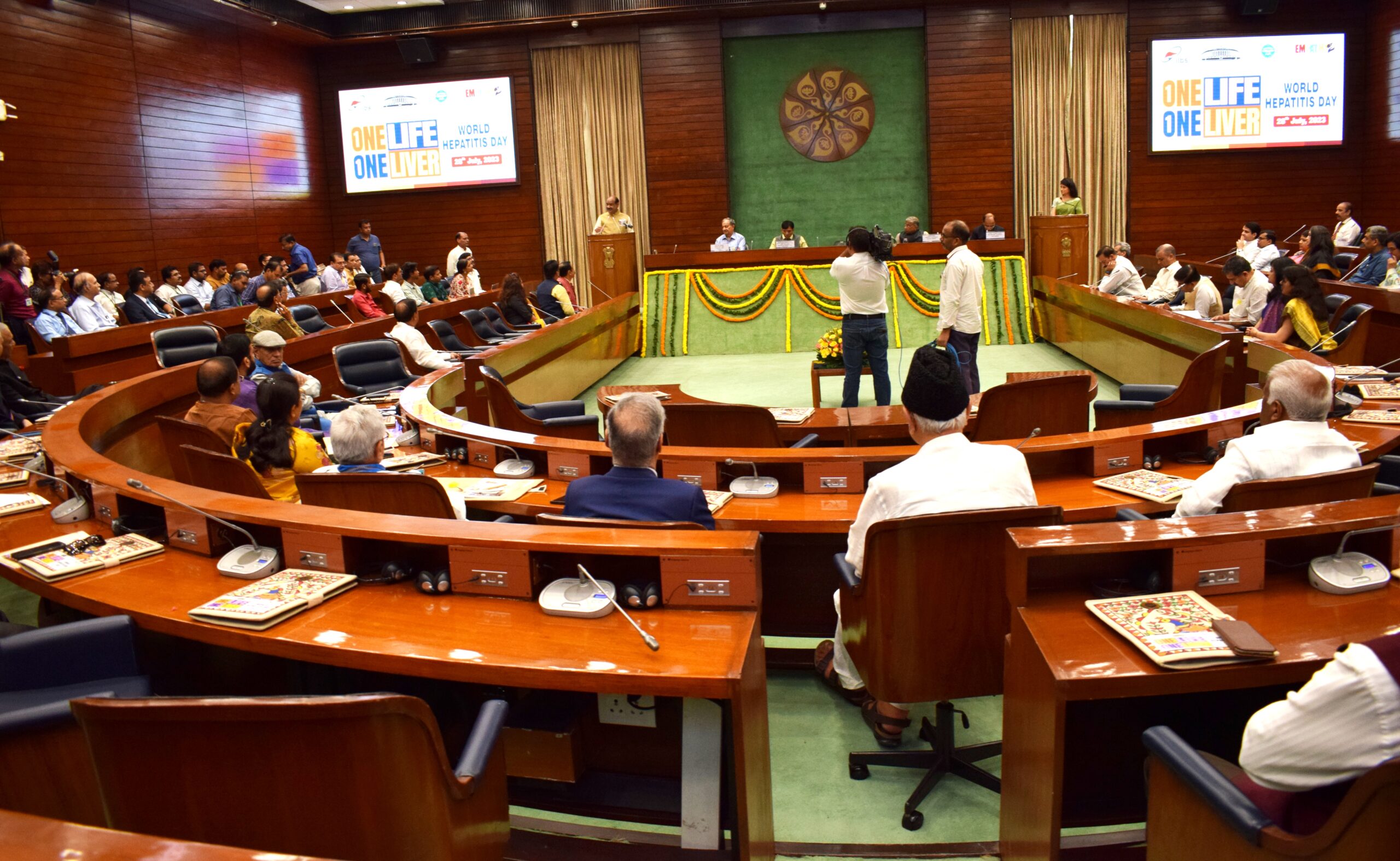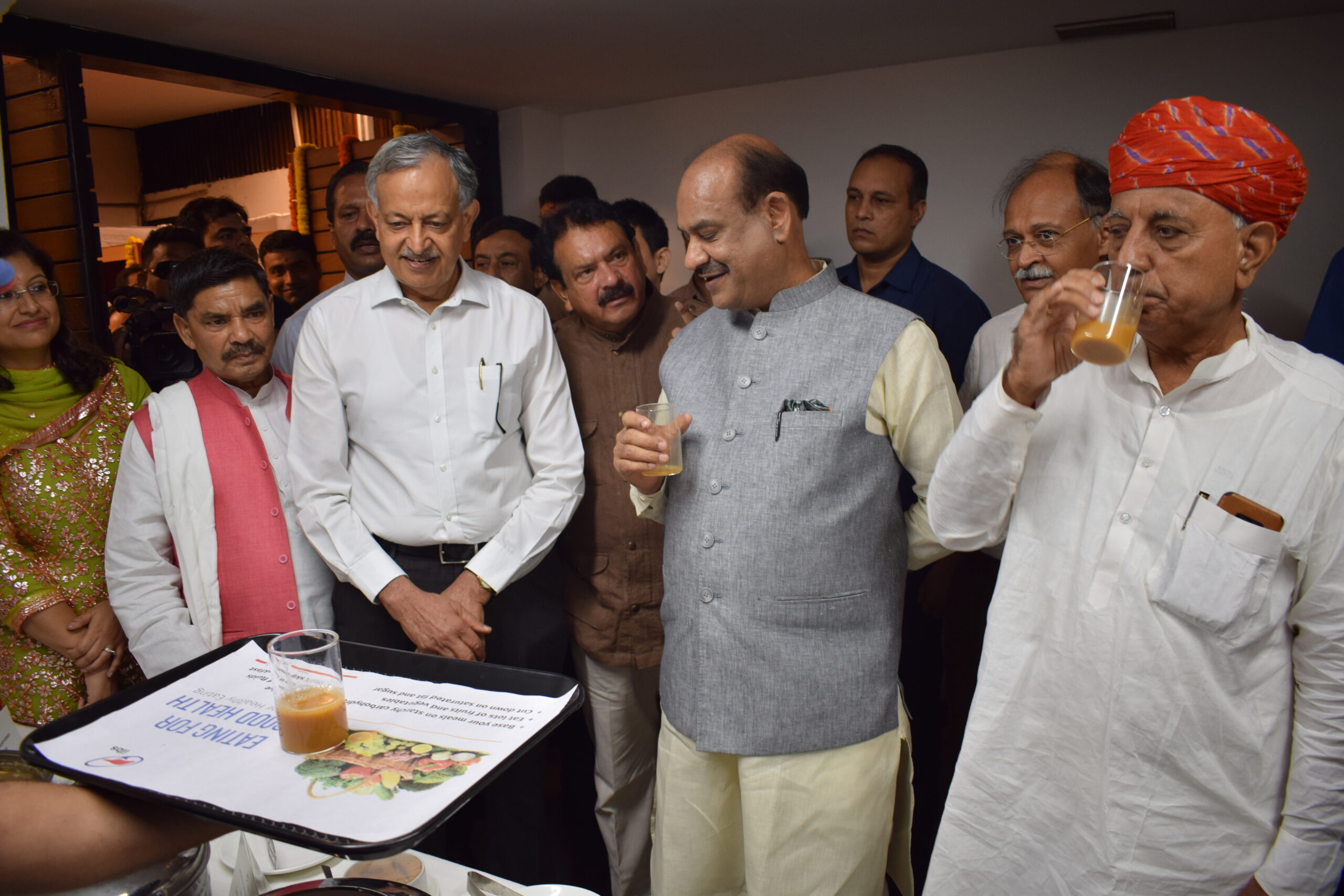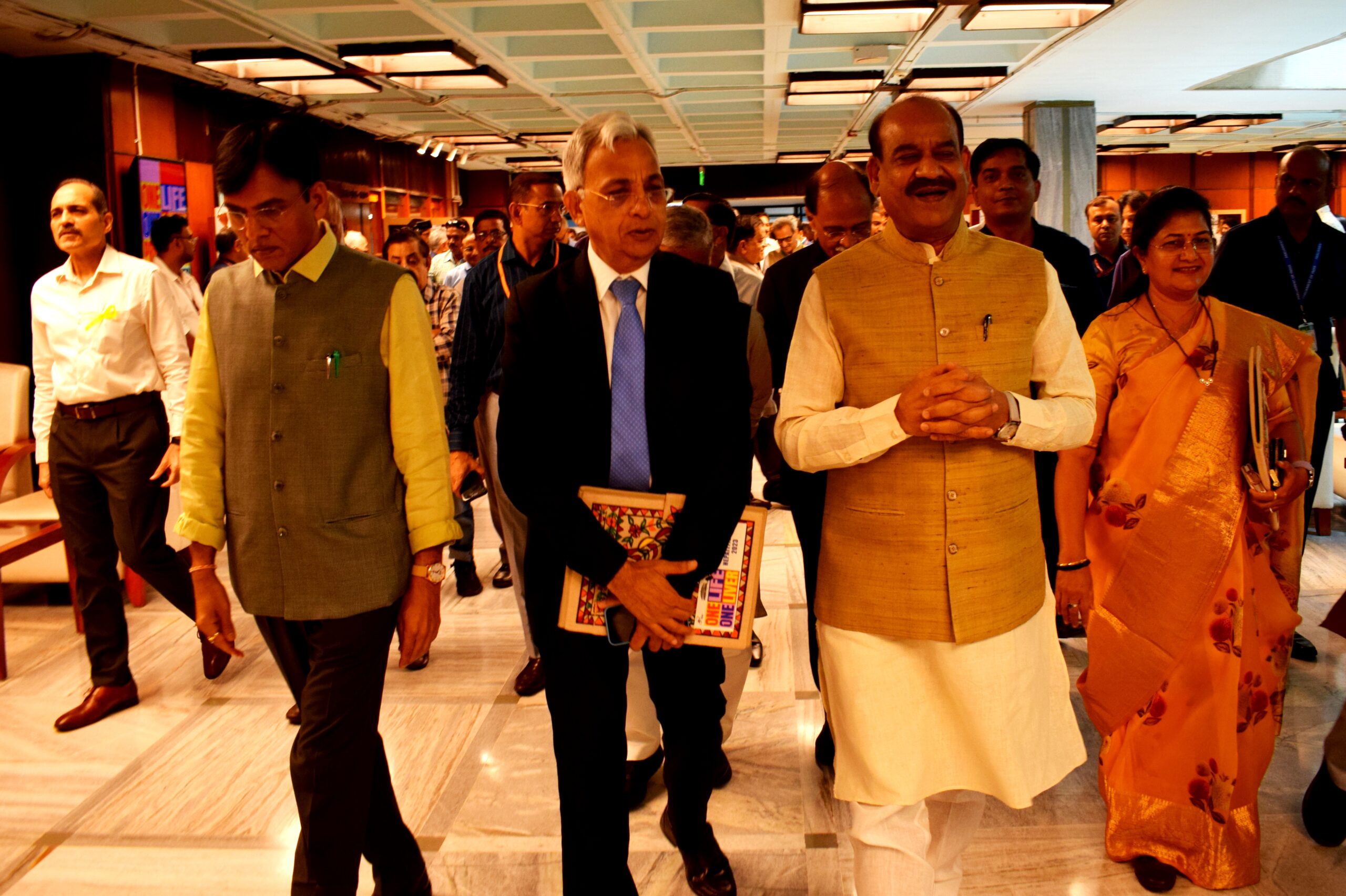


New Delhi, July 28, 2023: The Hon’ble Speaker Lok Sabha, Sh. Om Birla, Hon’ble Minister of MoH&FW, Chemicals and Fertilizers, Dr. Mansukh Mandaviya and other parliamentarians, today, joined hands to celebrate World Hepatitis Day at Parliament Annexe. Other dignitaries present at the event included Sh. Harivansh Narayan Singh, Dy. Chairman of Rajya Sabha, Sh. Utpal Kumar Singh, Sec. General Lok Sabha, and Prof. SK Sarin, Director ILBS.
The theme for the year 2023 is ‘One Life, One Liver’ reiterates the fact that hepatitis. If not controlled, can devastate both. A liver screening camp was held for a period of four days from 25th to 28th July, 2023 during which a total of 425 individuals were screened which included 70 members of Parliament. Another attraction was setting up of food counters under Daawat-e-Jigar, an initiative by ILBS to promote millet based diet in our food.
Dr. Shiv Kumar Sarin, Director, ILBS emphasised the importance of screening for fatty liver disease and encouraged everyone to pledge their support to keep their own liver healthy and also those of their families and friends. He alerted the dignitaries and audience present about the silent nature of fatty liver disease and stated that one in five fatty liver related deaths in the world is from India. He stressed on the importance of healthy diet and lifestyle choices for preventing and treating fatty liver diseases. He hoped for everyone to take the onus of protecting their liver upon themselves and spread the message to their near and dear ones.
About World Hepatitis Day
World Hepatitis Day, 28 July, is an opportunity to step up national and international efforts on hepatitis, encourage actions and engagement by individuals, partners and the public and highlight the need for a greater global response as outlined in the WHO's Global hepatitis report of 2017. The date of 28 July was chosen because it is the birthday of Nobel-prize winning scientist Dr Baruch Blumberg, who discovered hepatitis B virus (HBV) and developed a diagnostic test and vaccine for the virus. Low coverage of testing and treatment is the most important gap to be addressed in order to achieve the global elimination goals by 2030.


